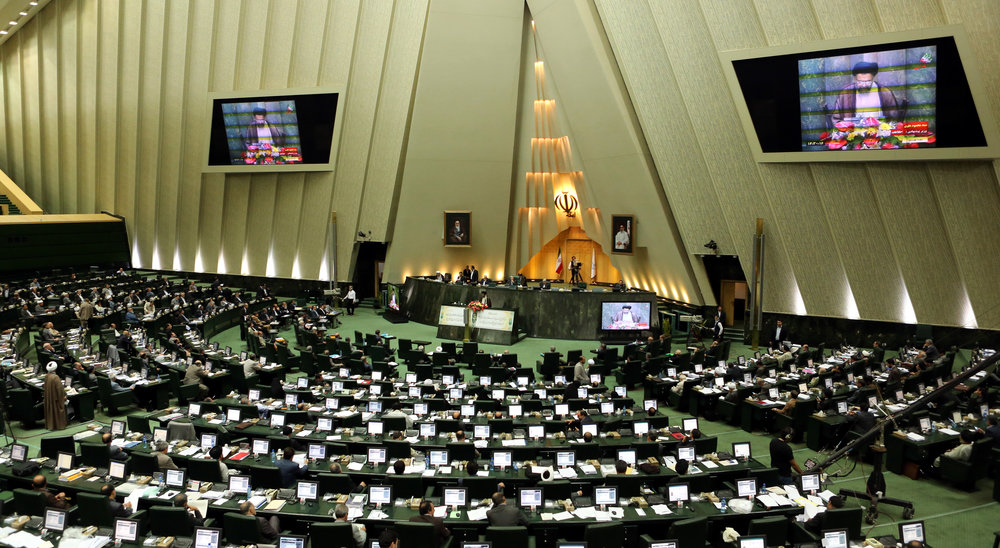Iranian Foreign Ministry, Parliament agree on anti-U.S. bill

TEHRAN – On Saturday, Iran’s parliament (Majlis) and Foreign Ministry agreed unanimously on a draft bill to counter “the U.S. support for terrorism and adventurism in the Middle East.”
The draft bill sailed through with no opposition in a plenary session of the Parliament National Security and Foreign Policy Committee, in which deputy foreign ministers Abbas Araqchi and Hassan Qashqavi were present.
“This move means that Majlis acts in unison in face of America’s Senate approval,” said Alaeddin Boroujerdi, the committee’s chairman.
Boroujerdi gave no details on when the bill would be officially brought to the parliament floor for approval. Nor did he speak about its details.
Overwhelmingly passed by the House on Tuesday, the U.S. Senate on Thursday passed bipartisan sanctions on Russia, Iran and North Korea on a 98-2 vote, sending the package to President Donald Trump, who must decide whether to accept or veto the measure.
The bill drew strong rebukes from Tehran and Moscow. The Iranian portion of the measure introduces new economic sanctions against Tehran over its ballistic missile program and what Washington calls the country’s “destabilizing role”.
Commenting on the decision, Araqchi, who played a key role in negotiating the nuclear deal, said the Foreign Ministry fully endorses the draft bill.
“The Foreign Ministry completely agrees with the draft bill prepared by the National Security and Foreign Policy Committee,” he said.
“There is need for befitting measures to counter U.S. hostile and wicked policies, which disrupt implementation of Barjam,” Araqchi added, referring to the Persian acronym for the landmark nuclear agreement in 2015 between Iran and six world powers including the U.S.
The nuclear agreement, officially known as the Joint Comprehensive Plan of Action, marked a major shift in more than three decades of antagonism between Washington and Tehran.
The deal, which removed economic sanctions against Iran in exchange for the country’s curbs on its nuclear program, requires all signatories to act “in good faith and in a constructive atmosphere.”
Also, the accord specifies that the United States, and other partners “will refrain from any policy specifically intended to directly and adversely affect the normalization of trade and economic relations with Iran inconsistent with their commitments not to undermine the successful implementation” of the agreement.
The Trump administration has acted in stark contrast to the stipulation so far.
Striking a hardline against Iran, the administration has branded Iran “state sponsor of terrorism", called for efforts to “isolate” it, and pledged to “renegotiate the deal” among others.
Tehran says the hostile rhetoric scares off foreign investment and prevents it from fully reaping the benefits of the deal.
Speaking in the residence of the Iranian ambassador to the United Nations on July 18, Zarif said: “It is not clear what the administration is trying to do.”
In an interview with the CNN one day earlier, Zarif noted that Washington has not been committed to both “spirit” and “letter” of the JCPOA.
“For instance, when the White House made an announcement that President Trump used his presence in Hamburg during the G20 meeting in order to dissuade leaders from other countries from engaging in business with Iran, that is a violation of not [only] the spirit, [but also] of the letter of the JCPOA.”
PA/PA

Leave a Comment